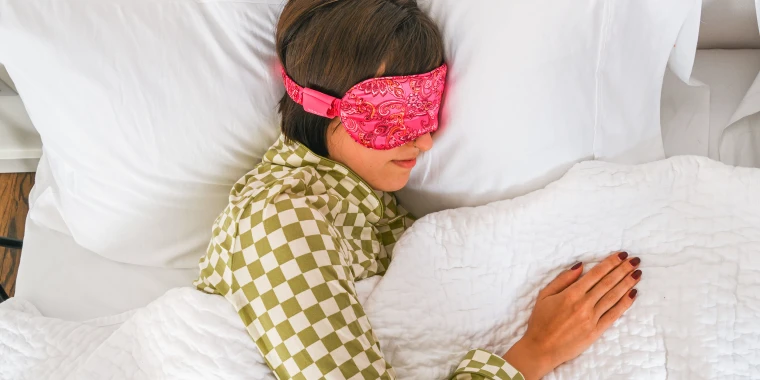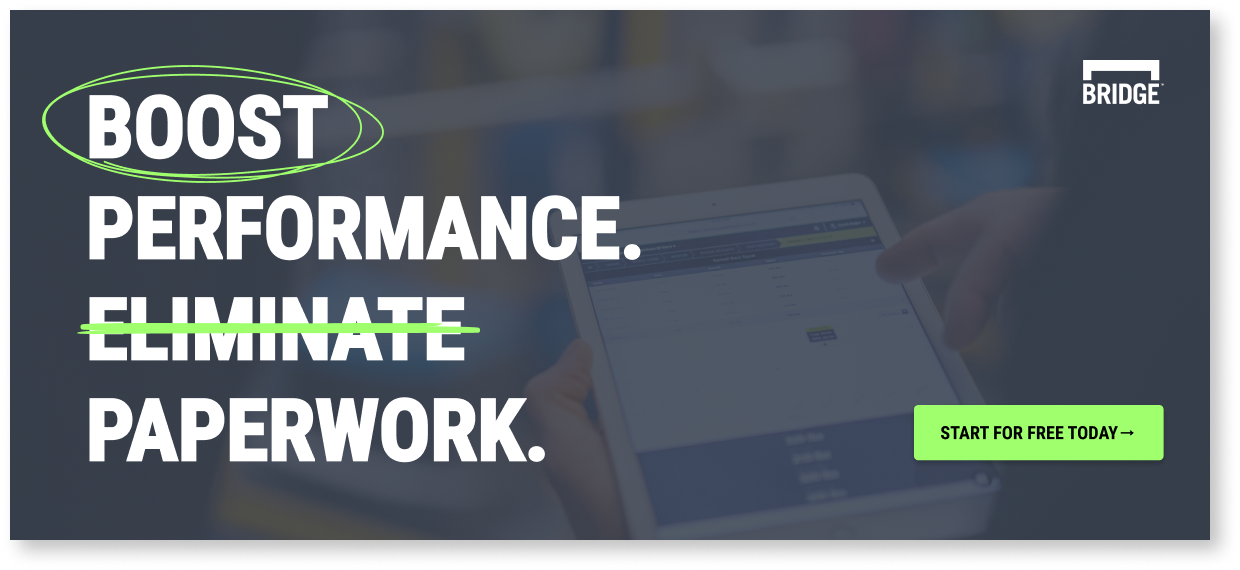Sleep Series pt. 4 | Sleep Hygiene
Welcome to Part Four of our Sleep Series! In Part Three, we discussed the power of stimulus control in improving sleep. Now, let's dive into another crucial aspect of sleep improvement: sleep hygiene.
Sleep hygiene includes a variety of practices that can improve sleep quality and promote a healthier lifestyle. In this post, we will delve into the essential elements of sleep hygiene to help you take your sleep to the next level. Sleep hygiene encompasses a wide range of factors that can impact sleep quality, from establishing a regular sleep routine to creating a suitable sleep environment. These practices can fill the gaps in our sleep habits and help us achieve better sleep. So, let's explore the key points of sleep hygiene.
One way to gauge if you are suffering from poor sleep hygiene is to assess certain symptoms. Feeling tired specifically in the mid-morning, experiencing poor sleep quality with frequent awakenings, or struggling to fall asleep are common signs of poor sleep hygiene.
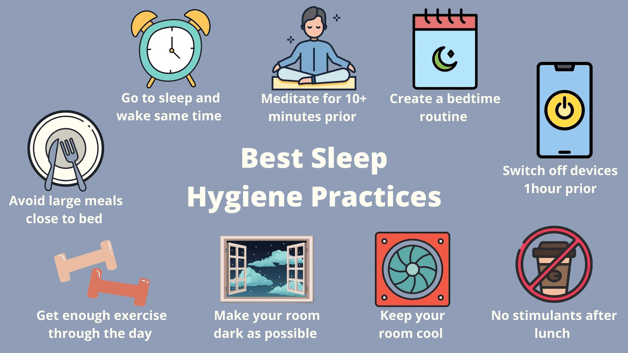
Optimizing your sleep environment
Improving your sleep hygiene starts with optimizing your sleep environment. Creating a dark and cool sleeping environment is crucial. The optimal temperature for sleep is around 63-68 degrees Fahrenheit. Keeping your bedroom dark is also important for longer and higher-quality sleep. Even small amounts of light from alarm clocks or windows can disrupt our brain's perception of nighttime. To combat this, consider using blackout curtains or an eye mask to block out any light sources.
No noise or white noise
Noise management is another aspect of sleep hygiene. Blocking external noise from your bedroom can contribute to a peaceful sleep environment. Some people prefer to use earplugs, while others find white noise machines helpful. White noise can also serve as a cue to your brain that it's time for sleep, improving your sleep routine.
Consistent Sleep Schedule
Maintaining a consistent sleep schedule is a game-changer for sleep hygiene. Waking up and going to bed at the same time every day helps regulate your circadian rhythm and sleep pressure. Your body loves consistency, and adhering to a regular sleep schedule ensures consistent sleep pressure. For example, if you consistently wake up at 7 am, your body will produce adenosine and build up sleep pressure accordingly. However, deviating from this schedule can disrupt your sleep pressure, making it harder to fall asleep at your usual bedtime.
Meditation
Anxiety often interferes with sleep. If you find that anxiety affects your ability to fall asleep, incorporating guided meditation into your routine can be beneficial. Numerous apps offer guided breathing exercises and mindfulness techniques that can reduce anxiety and promote quality sleep.
Reducing Screen Time
Reducing screen time before bed is another important aspect of sleep hygiene. The blue light emitted by electronic devices can interfere with melatonin production and stimulate the brain, making it harder to fall asleep. Engaging in exciting or stimulating activities before bed can also hinder relaxation. Therefore, it is recommended to avoid using electronic devices, such as smartphones or tablets, one to two hours before bed.
Create a wind-down routine for yourself
Developing a wind-down routine is a key element of sleep hygiene. A well-established routine can significantly improve both the quality and quantity of your sleep. While each person's routine may vary, the goal is to find activities that relax your body and mind, preparing you for a restful sleep.
Let's take a look at an example of a wind-down routine:
-
- Take a shower around 7 pm to relax. However, it is important to ensure that the shower is not too close to bedtime. The body needs time to lower its temperature to fall asleep and achieve quality sleep.
- Use blue light blocking glasses starting two hours before bed. Blue light from various sources, such as light bulbs, TVs, and cell phones, can inhibit melatonin production, which is essential for initiating the sleep cycle.
- Engage in relaxing activities such as working on personal projects, watching TV, or playing video games until around 8:30 pm. It is essential to wind down and allow your mind to relax before bedtime. However, be mindful of not engaging in stimulating activities that can interfere with sleep.
- Practice meditation for about 10 minutes. Guided meditation can help further calm your body and mind, setting the stage for a peaceful sleep.
- Read a book in bed until you feel tired, using a red light smart bulb to minimize exposure to stimulating light. Choose books that take your mind away from daily stressors and allow you to relax. Writing in a gratitude journal after reading can also cultivate positivity and reduce anxiety.
- Finally, when you feel tired, close your eyes, and allow yourself to fall asleep.
By incorporating these sleep hygiene practices into your routine, you can optimize your sleep and wake up feeling refreshed and ready to tackle the day ahead. Don’t get overwhelmed by the routine above. It is just an example so figure out what works for you
Improving your sleep hygiene is a journey, and it may take time to find the practices that work best for you. Stay consistent, be patient, and pay attention to what helps you achieve a better night's sleep.
References:
Irish LA, Kline CE, Gunn HE, Buysse DJ, Hall MH. The role of sleep hygiene in promoting Public Health: A review of empirical evidence. Sleep medicine reviews. August 2015. Accessed June 1, 2023. https://www.ncbi.nlm.nih.gov/pmc/articles/PMC4400203/.
JK; SE. Use of sleep hygiene in the treatment of insomnia. Sleep medicine reviews. Accessed June 1, 2023. https://pubmed.ncbi.nlm.nih.gov/12927121/.
Walker M. Why We Sleep. Scribner; 2017.
About the Author

Jacob Behara is a Human Performance Data Scientist at the US Army. Prior to working for the army, he spent the previous 3.5 years serving in similar positions with the Air Force Special Warfare Pipeline at the 351st SWTS and Special Warfare Candidate Course. During his time in the military Jacob has developed an affinity for sleep science and education based on objective sleep data from things like sleep wearables. Before Jacob transitioned into the tactical setting he was a strength coach with stops at the Houston Astros, Kansas City Royals, the University of Kansas, Stetson University, and EXOS. Jacob has a Masters in Exercise Science from Oklahoma State University and a Bachelors in Dietetics and Exercise also from OSU. Disclaimer: These views do not represent the views of the company Jacob works for, the army, or the Department of Defense
Related Posts
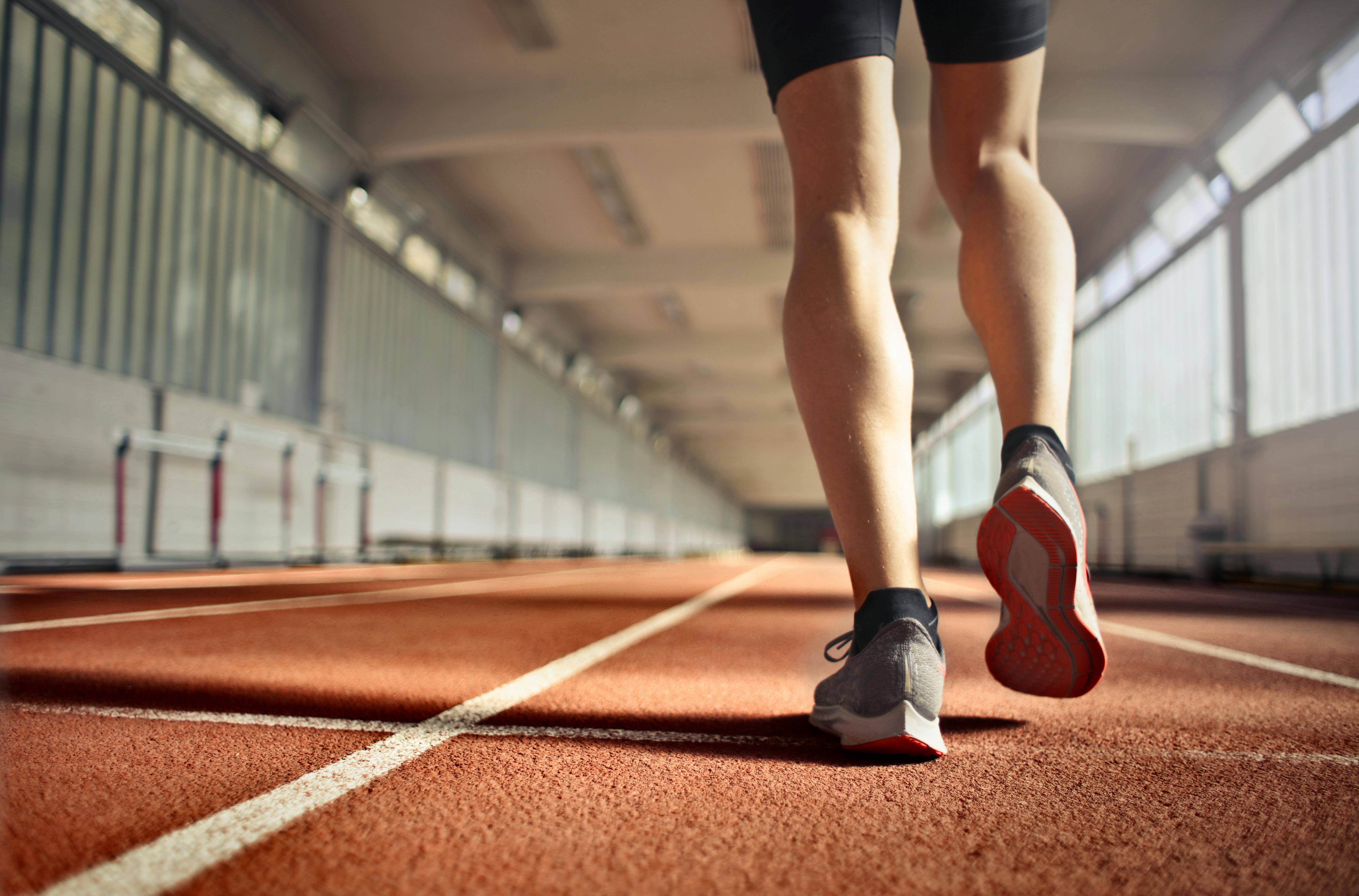
Exploring the Benefits of Retro-Walking...
Retro-walking (RW), or walking backward, is a therapeutic exercise used in resistance training...
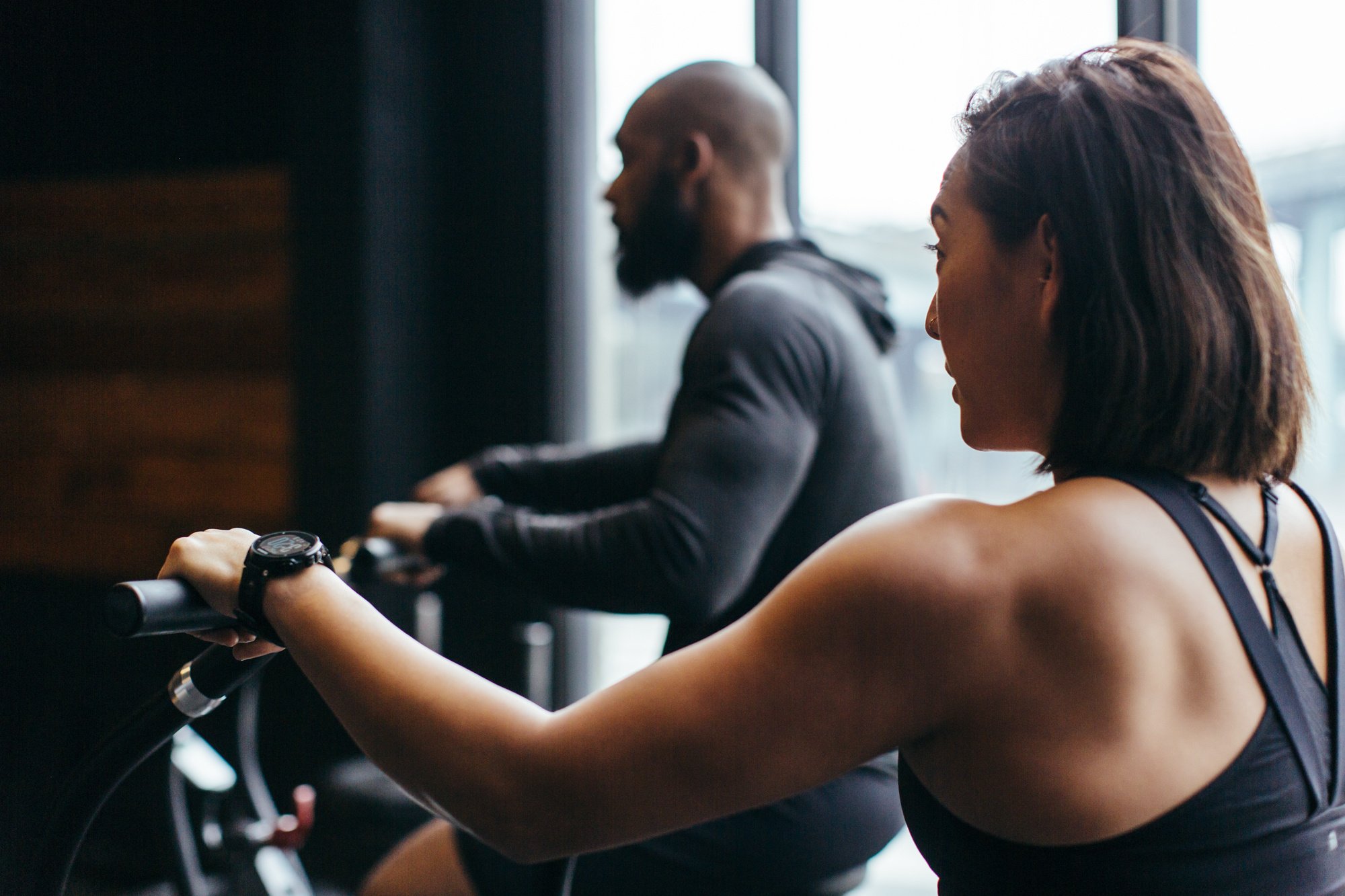
Understanding the Tapering Process: A...
As a strength coach and physiologist, I often get asked about tapering and how it fits into a...
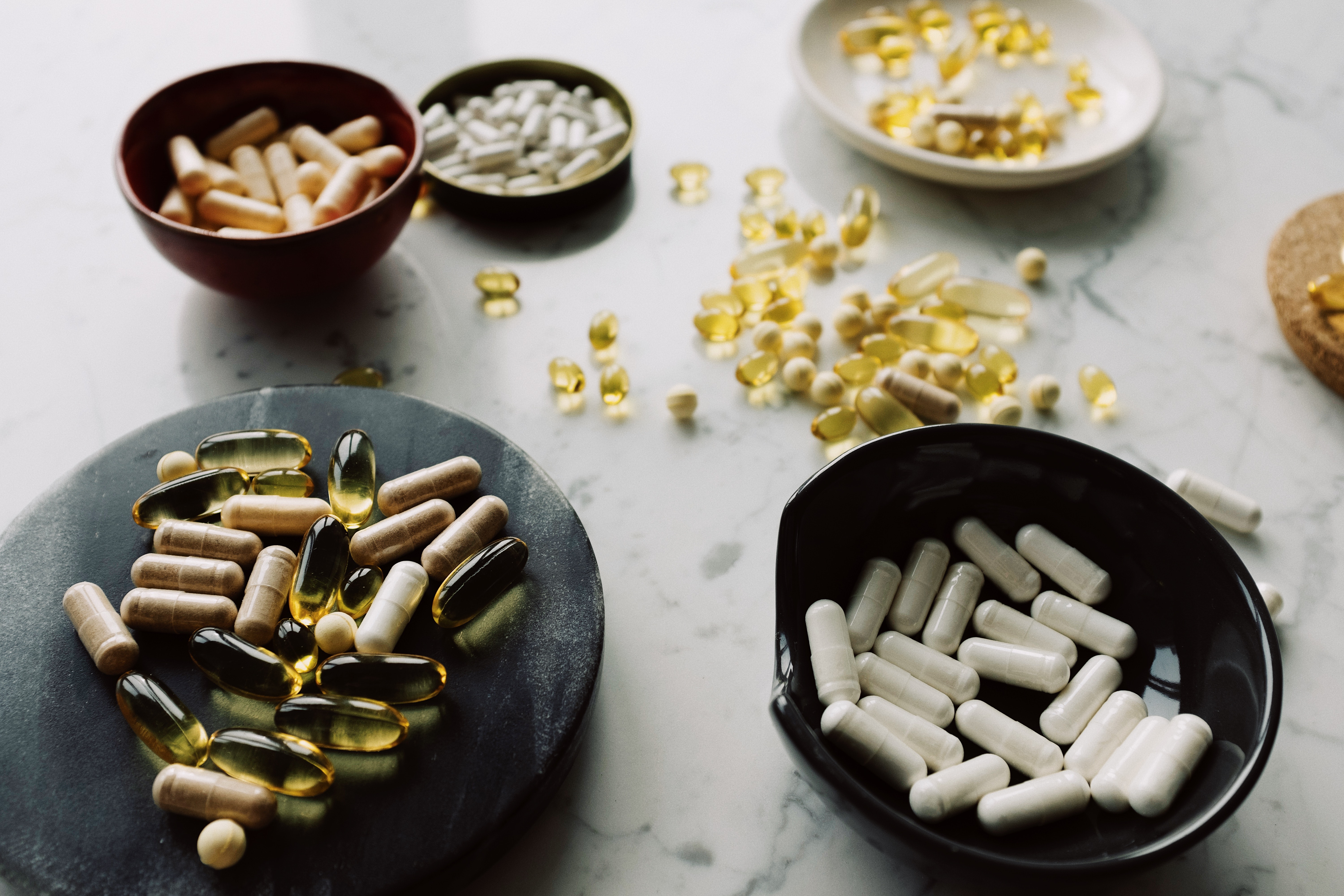
Supplement Safety with Tactical...
Dietary supplements seem like the "magic pill" a tactical operator needs to perform better,...

